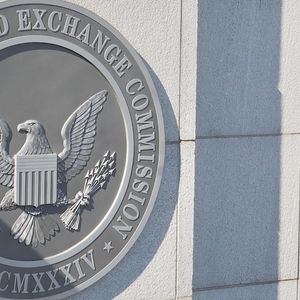The post Hyperliquid Faces FTX 2.0 Fears After JELLY Token Crash and Liquidation Blunder appeared first on Coinpedia Fintech News The crypto derivatives platform Hyperliquid is stepping up its risk management after a major liquidation event involving the JELLY token . To prevent losses for affected traders, the platform has confirmed that users who held long JELLY positions at settlement will be compensated $0.037555. However, flagged accounts will not be eligible for this refund. Hyperliquid: For users holding long JELLY positions at settlement, the Foundation will compensate them at a price of 0.037555. Hyperliquid will strengthen risk management: HLP will set limits on the Liquidator vault; if losses exceed the limit, ADL will be triggered; the open… — Wu Blockchain (@WuBlockchain) March 28, 2025 What triggered the Hyperliquid liquidation incident involving the JELLY token? The issue started when a trader executed a self-trade of 4 million USDC in JELLY at a low price of $0.0095. This move caused JELLY’s price to surge more than four times, leading Hyperliquid’s backstop protection system (HLP) to step in and liquidate the position. However, this liquidation ended up causing losses to HLP’s account value. Although Hyperliquid had restrictions in place to prevent excessive open interest, the problem arose when HLP took control of the position. Instead of triggering automatic deleveraging (ADL) to manage the risk, the system continued operating as usual because it shared collateral across multiple vaults. This flaw exposed HLP to unexpected losses. Bitget CEO Gracy Chen criticized Hyperliquid’s handling of the March 26 incident, warning that its approach to risk management could turn it into “FTX 2.0.” She raised concerns over how the platform managed the liquidation event, suggesting it posed serious risks to the exchange’s stability. What changes is Hyperliquid making after the March 26 JELLY incident? Yesterday is a good reminder to stay humble, hungry, and focused on what matters: building a better financial system owned by the people. Hyperliquid is not perfect, but it will continue to iterate and grow through the collective efforts of builders, traders, and supporters.… — Hyperliquid (@HyperliquidX) March 27, 2025 Hyperliquid is making big changes to avoid another major issue like the one on March 26. The platform is tightening control over its Liquidator vault, which steps in when big trades go wrong. Now, it won’t be able to take on too much risk, and money from other vaults won’t automatically be used to cover losses. If losses go beyond a set limit, an emergency system (ADL) will kick in to stabilize things. Another important update is that trading limits (OI caps) will now adjust based on market size. This will prevent huge trades from causing sudden price spikes or crashes. On top of that, Hyperliquid will introduce a voting system where validators will decide whether to remove certain assets if they don’t have enough liquidity or market activity. These changes aim to make the platform safer and more stable for traders. What concern did Hung Dang raise about the Hyperliquid JELLY incident? One X user, Hung Dang, raises a critical point about the recent Hyperliquid incident, questioning what happens to users who withdrew from the Vault before the platform intervened. If they pulled out early, their losses would be their own, rather than being covered by the Vault operator. However, since they had no way of knowing whether Hyperliquid would step in, they were in a tough spot—potentially taking losses that others who stayed might have avoided. This highlights the uncertainty traders faced during the crisis. Overall, the JELLY incident was a wake-up call for Hyperliquid, revealing system loopholes that need stronger security measures. FAQ What Happened in the Hyperliquid JELLY Incident? A self-trade of 4 million USDC in JELLY at a low price caused a sudden price spike. Hyperliquid’s liquidation system responded, but it ended up losing funds instead of protecting them. Why Did Hyperliquid’s Risk System Fail? The failure happened due to shared collateral across multiple vaults and no trigger for automatic deleveraging (ADL). This design flaw led to unexpected platform losses. How Did the JELLY Token Price Spike So Drastically? A user executed a self-trade at $0.0095, pushing JELLY’s price up by over 400%. This manipulated trade triggered liquidations and caused chaos in the system.














